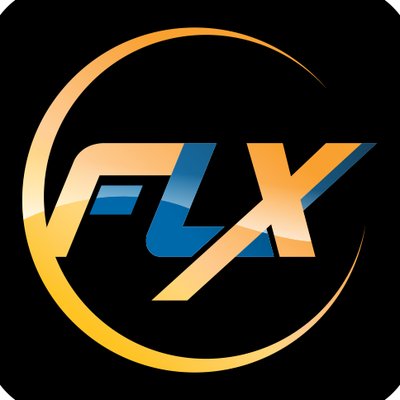|
18
- Bitcoin (BTC), Basic Attention Token (BAT), OmiseGO (OMG), Populous (PPT), Zilliqa (ZIL), 0x (ZRX), Aion (AION), IOST (IOST), KuCoin Shares (KCS), Waltonchain (WTC), Revain (REV), Power Ledger (POWR), NULS (NULS), Binance Coin (BNB), Bitcoin Cash (BCH), Ethereum (ETH), Litecoin (LTC), WAX (WAXP)
|
154
- Bitcoin (BTC), Basic Attention Token (BAT), Tezos (XTZ), Ethereum Classic (ETC), OmiseGO (OMG), Qtum (QTUM), Verge (XVG), Lisk (LSK), Ontology (ONT), Bitcoin Gold (BTG), Bytom (BTM), Zcash (ZEC), Populous (PPT), Wanchain (WAN), Dogecoin (DOGE), Bitcoin Private (BTCP), DigixDAO (DGD), Decred (DCR), RChain (RHOC), Aeternity (AE), Status (SNT), Loopring (LRC), Komodo (KMD), Aion (AION), Golem (GNT), IOST (IOST), DigiByte (DGB), Waltonchain (WTC), aelf (ELF), Centrality (CENNZ), Dragonchain (DRGN), Substratum (SUB), QASH (QASH), Veritaseum (VERI), MonaCoin (MONA), Syscoin (SYS), FunFair (FUN), Nebulas (NAS), Nucleus Vision (NCASH), Revain (REV), WAX (WAX), SALT (SALT), MaidSafeCoin (MAID), Power Ledger (POWR), Zcoin (XZC), Storm (STORM), Enigma (ENG), Storj (STORJ), TenX (PAY), Cindicator (CND), Dentacoin (DCN), Particl (PART), Kin (KIN), Civic (CVC), Iconomi (ICN), SmartCash (SMART), SingularityNET (AGI), POA Network (POA), GameCredits (GAME), Dent (DENT), Vertcoin (VTC), Quantstamp (QSP), Gnosis (GNO), iExec RLC (RLC), Decentraland (MANA), Polymath (POLY), Cube (CUBEAUTO), Ubiq (UBQ), Po.et (POE), Loom Network (LOOM), NULS (NULS), Enjin Coin (ENJ), High Performance Blockchain (HPB), Raiden Network Token (RDN), Metal (MTL), Santiment Network Token (SAN), Pundi X (NPXS), Bitcore (BTX), SIRIN LABS Token (SRN), Bluzelle (BLZ), Genesis Vision (GVT), Pillar (PLR), Gifto (GTO), PayPie (PPP), BLOCKv (VEE), Bibox Token (BIX), OST (OST), ETHLend (LEND), IoT Chain (ITC), DATA (DTA), Ripio Credit Network (RCN), SONM (SNM), Quantum Resistant Ledger (QRL), AdEx (ADX), SingularDTV (SNGLS), Eidoo (EDO), UTRUST (UTK), Groestlcoin (GRS), Edgeless (EDG), WePower (WPR), SpankChain (SPANK), CRYPTO20 (C20), Peercoin (PPC), Crypterium (CRPT), Oyster Pearl (PRL), Feathercoin (FTC), AppCoins (APPC), USD Coin (USDC), Ripple (XRP), Binance Coin (BNB), Bitcoin Cash (BCH), Cardano (ADA), Dash (DASH), EOS (EOS), Ethereum (ETH), Litecoin (LTC), Monero (XMR), NEM (XEM), Stellar (XLM), Tether (USDT), Polkadot (DOT), Matic Network (MATIC), Ampleforth (AMPL), xDai (STAKE), Nectar (NEC), Zap (ZAP), Monolith (TKN), Metronome (MET), YAM v1 (YAM), Auctus (AUC), pTokens BTC (PBTC), Compound Ether (CETH), PieDAO BTC++ (BTC++), Compound Basic Attention Token (CBAT), Compound 0x (CZRX), Compound Wrapped BTC (CWBTC), Compound Augur (CREP), Huobi Token (HT), Binance USD (BUSD), NEAR Protocol (NEAR), TrueUSD (TUSD), HUSD (HUSD), Paxos Standard (PAX), Ocean Protocol (OCEAN), Celo (CELO), Energy Web Token (EWT), Quant (QNT), SwissBorg (CHSB), IoTeX (IOTX), RSK Infrastructure Framework (RIF), TomoChain (TOMO), Uquid Coin (UQC), Unibright (UBT), Fantom (FTM)
|
| About |
FLX wallet is an offline device used to store crypto funds securely. FLX wallet supports major cryptocurrencies.
|
Trezor is an offline device used to store crypto private keys. Trezor is one of the top secure hardware wallets and works on Windows 8+, macOS, Android, and Linux. It is connected to a USB port of your computer via cable.
|
| Founding Date |
Founding Date
2016
|
Founding Date
2013
|
| Country |
Country
International
|
Country
International
|
| Languages |
Languages
English, Simplified Chinese
|
Languages
English, Japanese, Portuguese, German, French, Spanish, Greek, Russian, Traditional Chinese, Simplified Chinese, Dutch, Indonesian, Polish, Czech, Ukrainian, Bengali
|
| Wallet type |
Wallet type
Hardware wallet
|
Wallet type
Hardware wallet
|
| Storage type |
Storage type
Cold wallet
|
Storage type
Cold wallet
|
| Private keys |
Private keys
Available
|
Private keys
Available
|
| Available coins |
Available coins
18
- Bitcoin (BTC), Basic Attention Token (BAT), OmiseGO (OMG), Populous (PPT), Zilliqa (ZIL), 0x (ZRX), Aion (AION), IOST (IOST), KuCoin Shares (KCS), Waltonchain (WTC), Revain (REV), Power Ledger (POWR), NULS (NULS), Binance Coin (BNB), Bitcoin Cash (BCH), Ethereum (ETH), Litecoin (LTC), WAX (WAXP)
|
Available coins
154
- Bitcoin (BTC), Basic Attention Token (BAT), Tezos (XTZ), Ethereum Classic (ETC), OmiseGO (OMG), Qtum (QTUM), Verge (XVG), Lisk (LSK), Ontology (ONT), Bitcoin Gold (BTG), Bytom (BTM), Zcash (ZEC), Populous (PPT), Wanchain (WAN), Dogecoin (DOGE), Bitcoin Private (BTCP), DigixDAO (DGD), Decred (DCR), RChain (RHOC), Aeternity (AE), Status (SNT), Loopring (LRC), Komodo (KMD), Aion (AION), Golem (GNT), IOST (IOST), DigiByte (DGB), Waltonchain (WTC), aelf (ELF), Centrality (CENNZ), Dragonchain (DRGN), Substratum (SUB), QASH (QASH), Veritaseum (VERI), MonaCoin (MONA), Syscoin (SYS), FunFair (FUN), Nebulas (NAS), Nucleus Vision (NCASH), Revain (REV), WAX (WAX), SALT (SALT), MaidSafeCoin (MAID), Power Ledger (POWR), Zcoin (XZC), Storm (STORM), Enigma (ENG), Storj (STORJ), TenX (PAY), Cindicator (CND), Dentacoin (DCN), Particl (PART), Kin (KIN), Civic (CVC), Iconomi (ICN), SmartCash (SMART), SingularityNET (AGI), POA Network (POA), GameCredits (GAME), Dent (DENT), Vertcoin (VTC), Quantstamp (QSP), Gnosis (GNO), iExec RLC (RLC), Decentraland (MANA), Polymath (POLY), Cube (CUBEAUTO), Ubiq (UBQ), Po.et (POE), Loom Network (LOOM), NULS (NULS), Enjin Coin (ENJ), High Performance Blockchain (HPB), Raiden Network Token (RDN), Metal (MTL), Santiment Network Token (SAN), Pundi X (NPXS), Bitcore (BTX), SIRIN LABS Token (SRN), Bluzelle (BLZ), Genesis Vision (GVT), Pillar (PLR), Gifto (GTO), PayPie (PPP), BLOCKv (VEE), Bibox Token (BIX), OST (OST), ETHLend (LEND), IoT Chain (ITC), DATA (DTA), Ripio Credit Network (RCN), SONM (SNM), Quantum Resistant Ledger (QRL), AdEx (ADX), SingularDTV (SNGLS), Eidoo (EDO), UTRUST (UTK), Groestlcoin (GRS), Edgeless (EDG), WePower (WPR), SpankChain (SPANK), CRYPTO20 (C20), Peercoin (PPC), Crypterium (CRPT), Oyster Pearl (PRL), Feathercoin (FTC), AppCoins (APPC), USD Coin (USDC), Ripple (XRP), Binance Coin (BNB), Bitcoin Cash (BCH), Cardano (ADA), Dash (DASH), EOS (EOS), Ethereum (ETH), Litecoin (LTC), Monero (XMR), NEM (XEM), Stellar (XLM), Tether (USDT), Polkadot (DOT), Matic Network (MATIC), Ampleforth (AMPL), xDai (STAKE), Nectar (NEC), Zap (ZAP), Monolith (TKN), Metronome (MET), YAM v1 (YAM), Auctus (AUC), pTokens BTC (PBTC), Compound Ether (CETH), PieDAO BTC++ (BTC++), Compound Basic Attention Token (CBAT), Compound 0x (CZRX), Compound Wrapped BTC (CWBTC), Compound Augur (CREP), Huobi Token (HT), Binance USD (BUSD), NEAR Protocol (NEAR), TrueUSD (TUSD), HUSD (HUSD), Paxos Standard (PAX), Ocean Protocol (OCEAN), Celo (CELO), Energy Web Token (EWT), Quant (QNT), SwissBorg (CHSB), IoTeX (IOTX), RSK Infrastructure Framework (RIF), TomoChain (TOMO), Uquid Coin (UQC), Unibright (UBT), Fantom (FTM)
|
| Security |
Security
No data
|
Security
Personal
|
| Anonymity |
Anonymity
No data
|
Anonymity
High
|
| Ease of use |
Ease of use
No data
|
Ease of use
Average
|
| Has attached card |
Has attached card
No data
|
Has attached card
no
|
| Has trading facilities |
Has trading facilities
No data
|
Has trading facilities
No data
|
| Has vouchers and offers |
Has vouchers and offers
No data
|
Has vouchers and offers
No data
|
| Features |
Features
No data
|
Features
Open Source, 2 Factor Authentication
|
FLX Wallet user rating is 5, based on 1 user reviews. Trezor Wallet user rating is 4, based on 3 user reviews.
We also calculate the special Cryptogeek TrustScore based on the characteristics of each wallet.

